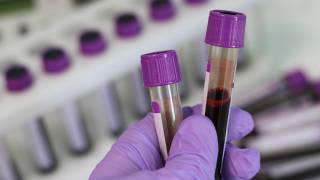Don’t Forget Your 2nd or 3rd HepA Vaccination in 2019

According to new reports, the nationwide hepatitis A outbreak has continued into 2019.
Both Tennessee and Arkansas have reported new hepatitis A outbreaks during 2019.
According to information from the Centers for Disease Control and Prevention (CDC), the best way to prevent contracting this liver disease is with vaccination.
If you got the 1st dose of a hepatitis A vaccine, that’s a step in the right direction.
To ensure long-term protection from this viral liver disease, 2 vaccine doses are needed.
And in some cases, a 3rd does is needed, says the CDC.
The number and timing of these hepatitis A vaccinations depend on the type of vaccine you are given, says the CDC.
But, according to various reports, a large number of Hepatitis A virus (HAV) vaccinated people are not getting their ‘next’ hepatitis A dose.
As an example, Louisville health officials reported nearly 25,000 hepatitis A vaccinations were administered during 2018.
But, only about 9 percent of those people have gotten the 2nd shot.
“Once you are vaccinated with the first dose, that helps prevent 80 percent of the disease,” Norton Healthcare Pediatrician Dr. Erin Frazier said to Wave3.com
“That’s why you need to get a second Hep A vaccine dose 6 months later to completely prevent getting the disease.”
Further, the CDC says the 2 brands of hepatitis A vaccine are interchangeable.
Two monovalent hepatitis A vaccines, Vaqta and Havrix, are approved for people older than 1 year of age in a 2-dose series.
And, Twinrix is a combined hepatitis A and hepatitis B vaccine approved for people older than 18 years of age in the USA.
If you miss the 6-month timeline, you do not need to start the vaccination series over again, says the CDC. And, getting an extra dose of the hepatitis A vaccine is not harmful.
“Hepatitis A has no cure, but both can be prevented with vaccinations. And, vaccine recommendations are constantly evolving,” said Michelle Beall, Pharm.D. Clinical Pharmacist Brookshire Grocery Company.
On November 2, 2018, the CDC’s Advisory Committee on Immunization Practices (ACIP) committee’s updated travel vaccination suggestions.
“This includes travel vaccines too. It’s a great idea to ask your doctor or pharmacist which vaccines are recommended for you whether or not you plan to travel internationally," continued Beall.
In the USA, the most frequently identified risk factor for HAV is international travel, says the CDC.
Travel-related hepatitis A can occur in travelers who visit developing countries.
The CDC publishes a list of countries where hepatitis A is high-risk.
The HAV risk is highest for those who live in or visit rural areas, hike in backcountry areas, or frequently eat or drink in settings with poor sanitation.
International travelers who are exposed to HAV and who have not received a hepatitis A vaccine previously should be administered 1 dose of monovalent hepatitis A vaccine or IG as soon as possible.
To request a travel vaccination counseling appointment at a local pharmacy, please visit Vax-Before-Travel.
The CDC Vaccine Price List displays current hepatitis vaccine contract prices and general information.
And, hepatitis vaccine discounts can be found here.
Vaccines, like any medicine, can have side effects. You are encouraged to report negative side effects of vaccines to the FDA or CDC.
Hepatitis A virus is a communicable disease of the liver caused by the hepatitis A virus and is a nonenveloped RNA virus, classified as a picornavirus.
HAV cannot be differentiated from other types of viral hepatitis on the basis of clinical or epidemiologic features. Diagnosis requires a positive test for antibody to HAV IgM in serum, which is detectable from 2 weeks before the onset of symptoms, to approximately 6 months afterward.
Our Trust Standards: Medical Advisory Committee

























